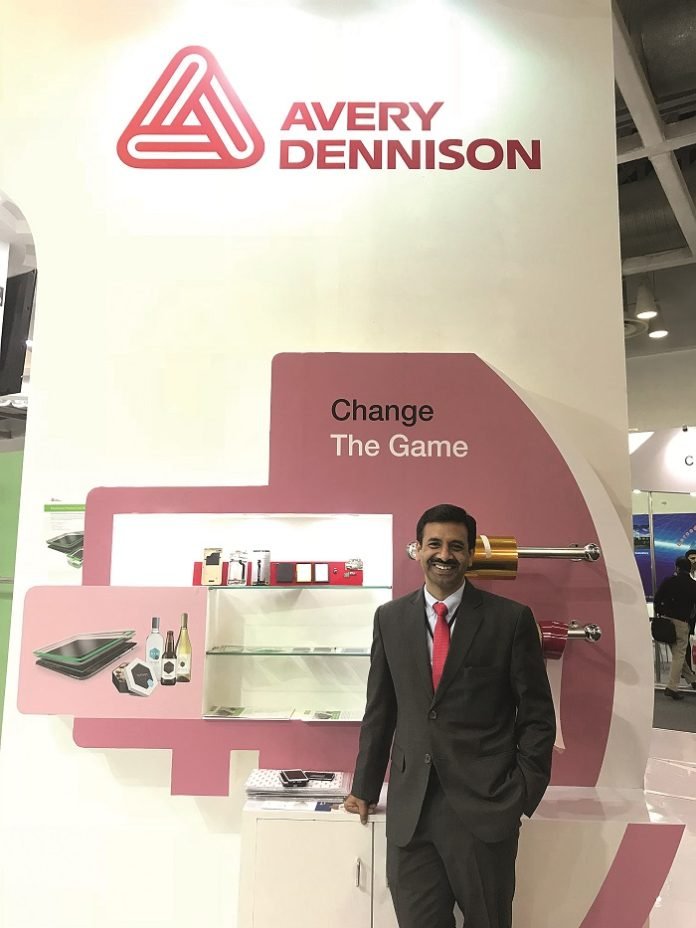Avery Dennison, the largest label stock provider in India, published its global sustainability goals in 2017. These goals focus on the company’s commitment and are available on its website. The eight goals cut across several dimensions of sustainability, starting with the sourcing of paper from sustainable and certified sources – aiming at least 70% of the materials being FSC certified.
As of 2019, 50% of the paper sourced by Avery Dennison in India is FSC certified. Pankaj Bhardwaj, vice president and general manager of Avery Dennison India and SAARC, says the company is “Providing this paper at a price neutral position to its customers as of now. Avery Dennison took this step to encourage the adoption of this product.”
Towards a sustainable tomorrow
Three buckets look at sustainability: reduce, recycle, and redesign. “We are making big progress on the reduction front. We call it as Clearintent. It is a portfolio under which we are redesigning or reusing the material we use so that it has a less negative impact on the environment. All this requires a fair bit of R&D, and we are doing our bit,” explains Bhardwaj. To support its reduce theme, Avery Dennison has so far launched paper, films, and liner in thinner grades.
Avery Dennison uses recycled paper to sell a face stock that has no performance impact. It has also introduced a new film in the market that is capable of replacing the conventional 80-micron film with a 50-micron film called Flexiprint. In the recycling of finished goods, Avery Dennison launched CleanFlake that easily separates the label from the container for recycling. It has also launched two programs for liner and matrix waste recycling. The label liner is converted to tissue paper while the matrix down-cycled. “Films are largely down-cycled, and I would say it’s a step in the right direction. At least, they aren’t going to landfills and are being put to productive use. In a country like India, these products can be
used in many ways,” adds Bhardwaj.
Sustainability must now be a consumer agenda
Sustainability cannot be limited to the brand owners and converters – it is time for consumers also to pitch in. “Waste is now being segregated at the consumer’s end before it reaches the recycler. This change, according to me, is phenomenal. At the individual level, no brand can afford not to acknowledge and notice a fundamental change in consumer behavior. I sense that every brand is recognizing this need. Of course, some corporates are far more forward-looking and responsible in their approach, and there are a few that are still learning the tricks, but it has now become a prime concern for everyone,” asserts Bhardwaj. However, there are logistic, technology-led, or commercial challenges, and the corporates are trying to find out how to overcome these at every level.
Smart labels and Smartrac
Every product is going to have its digital identity in the days to come. A label that helps a product gain its digital identity is smart. Avery Dennison’s vision is to give every product a digital identity so that it can make the whole supply chain far more efficient and customer engagement effortless.
Avery Dennison recently acquired Smartrac, which will help accelerate its strategy to expand its intelligent label platform across a variety of end markets within the industrial and retail segments. “While we are open to both organic and inorganic ways of ensuring the acceleration, Smartrac offers an interesting opportunity to do this inorganically and hence the acquisition. These are early days, and it’s a bit early to comment when it will come to India. Still, given that the acquisition is global if there is an existing operation of Smartrac already in India, I’m sure it’ll happen pretty soon,” says Bhardwaj.
Avery Dennison has made a significant investment in an intelligent lab in its Pune demonstration and training center, to showcase various smart solutions offered by the company, such as RFID and NFC, as base technologies. “We see good traction in certain market segments for them to adopt these. And with initial successes, we are looking to augment our investment in smart label technology for the Indian market. There are unique problems in our ecosystem that can be solved by smart labels. Hence, we have to find these pain points such as counterfeiting that can, to an extent, if not entirely, be solved by smart labels,” Bhardwaj explains.
Transformation of the Indian label industry
According to Bhardwaj, demographics have a direct correlation with consumer product growth, and consumer product growth has a direct relationship with label industry growth. Changes in demographics due to urbanization and changing consumer preferences have also increased the emphasis on product premiumization.
Consumers look for attractive products on the shelf, to fulfill their aspirations of using a better product. Premiumization has helped in broadening the PS penetration in the country. “We have seen continuous growth and can take some credit for it because we have a battery of business development managers who work closely with brand owners to promote the PS technology and encourage the shift from wet-glue to PS labels. This growth is a function of changing demographics,” Bhardwaj concludes.











